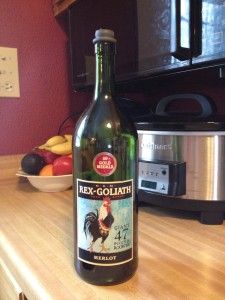 Today’s post may be considered controversial, but I feel the need to talk about wine. Specifically, all the women who are being lead to believe by the wine industry that they deserve “Mommie’s little helper,” after a long day taking care of children, home, work, etc.
Today’s post may be considered controversial, but I feel the need to talk about wine. Specifically, all the women who are being lead to believe by the wine industry that they deserve “Mommie’s little helper,” after a long day taking care of children, home, work, etc.
Every day there are memes that show up on my Facebook feed designed to encourage women to drink alcohol – all of them are shared by women… It’s been a very long time since I have liked, laughed at, or shared any of them. Here’s why.
So many women that I know bought into the whole idea that a little alcohol is good for your health, or that your mental health needs a glass of wine or two, or a bottle. Most of these women either now participate in AA or are suffering the effects of alcoholism but not seeking help yet. Some of them have battled throat and/or breast cancer. This is sad and unacceptable. To me, it’s the exact same thing as when the tobacco industry did not share the information that cigarettes cause cancer, emphysema, and other lung diseases for so many years. Yes, you heard that right, THE SAME THING.
At last some physicians are now speaking out and sharing the information that alcohol CAUSES seven types of cancer.
“Epidemiologic evidence supports a causal association of alcohol consumption and cancers of the oropharynx, larynx, esophagus, liver, colon, rectum, and female breast, says Jennie Connor, MB, ChB, MPH, from the Department of Preventive and Social Medicine, University of Otago, in Dunegin, New Zealand. In short, alcohol causes cancer.”
Dr. Connor goes on to say that this is not news. Many cancer treatment/research facilities have long known and listed these as alcohol related cancers. The alcohol industry uses words like related, linked to, risk of, instead of stating the truth, which is that alcohol causes these cancers. According to the research that she studied, greater than 50 grams (1.609 ounces) of alcohol daily raises your risk for mouth, pharynx and esophageal cancer 4-7 times. Less than that for the rest of the above cancers. That amount is a little over a shot of alcohol and according to the National Consumers League, “one 12-oz. beer has as much alcohol as a 1.5-oz. shot of whiskey, or a 5-oz. glass of wine.”
Another report from the American Public Health Association back in 2013 concluded that 3.5% of cancer deaths in the US are caused by alcohol. This report talks about more than two drinks a day.
So, my point here is, not only can you become addicted to alcohol and join the millions of others in AA, you are also taking a risk for developing certain types of cancer. Having witnessed my brother’s radiation/chemo treatment for his throat cancer a few years back, and the permanent damage that the followup surgery caused, believe me when I say you don’t wish that on your worst enemy. AND, I will add that at that time, the Dana Faber Cancer Center listed alcohol as one of the causes of throat cancer.
You are probably wondering if I drink? Well, as these studies and more information has come out in recent years, I have been reducing the amount of wine I drink. Having been a lightweight in that department who couldn’t handle anything stronger than wine all of my life, I now limit myself to drinking a glass of red wine with the special dinners that Ned and I cook together on weekends, or holiday parties. Perhaps some day I will not have any at all, but for now, that feels right for me.
What I ask is that you begin to think about whether you truly want that glass of wine (or other alcoholic beverage) or not. Think about the risk you are taking, think about your family and friends. Simply think before you drink. Then you will discover what feels right for you, and not what the media is pushing. Take care of you!
And if you are wondering about the news stories you have seen touting the benefits of drinking a small amount of alcohol daily, I can find no reliable scientific evidence supporting that. In fact, the Mayo Clinic states “The evidence about the possible health benefits of alcohol isn’t certain, and alcohol may not benefit everyone who drinks.” In short, the few possible benefits do not outweigh the risks.
Best of Health,
Kathi



